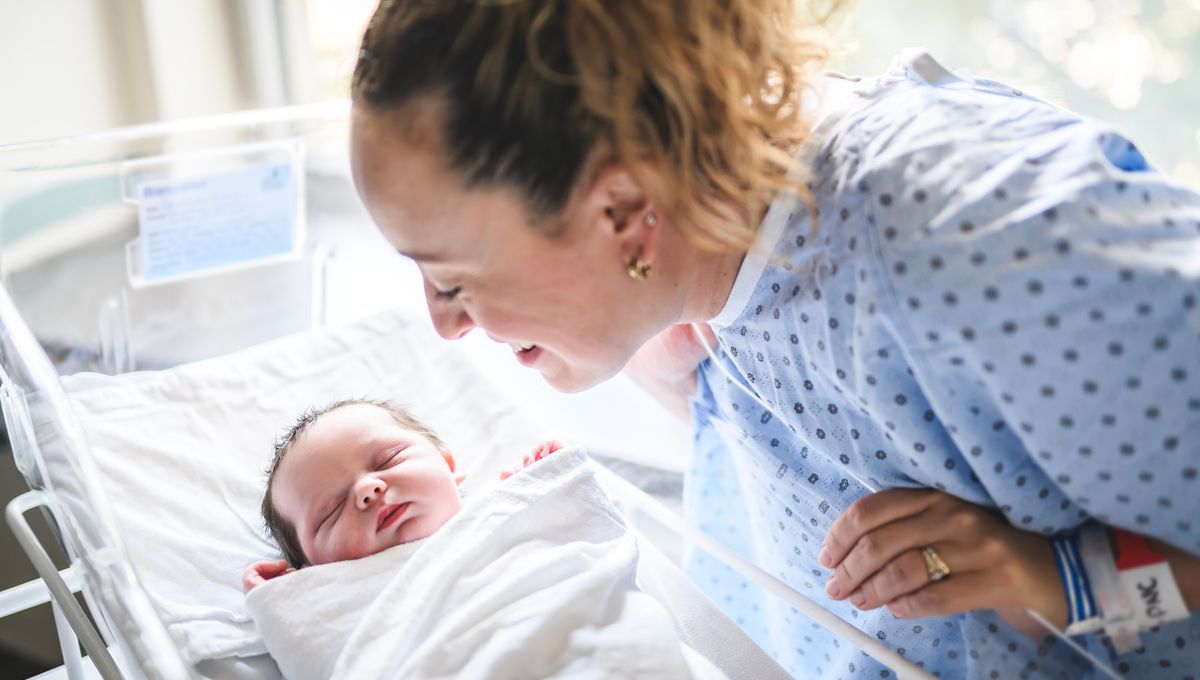
One person’s trash is another person’s treasure – and in the case of early results from an ongoing clinical trial involving the gut microbiomes of babies born by cesarean section, that treasure might just be a mixture of milk and poop.
Whether or not a baby is born vaginally or by c-section is believed to have an impact on the number and type of microbes that end up in the baby’s gut, which in turn can have an effect on their health. Some studies, for example, have found that delivery by c-section increases the risk of a child developing conditions like asthma, celiac disease, and diabetes.
That’s where the Cesarean Section and Intestinal Flora of the Newborn Study (SECFLOR) comes in. It’s a clinical trial that’s been investigating whether a so-called “poop milkshake” – a small amount of the mother’s feces diluted in milk – fed to babies born by c-section can introduce beneficial microbes into their gut.
This is what’s known as a fecal transplant, a procedure that could hold a lot of potential in treating a whole host of different medical conditions – though the current trial is believed to be the first randomized and controlled study testing a combination of milk and poop.
The SECFLOR team recently reported some preliminary findings from the trial, which revealed that the method shows promise.
A total of 31 babies delivered by c-section were split into two groups; on their first feed, 15 of the babies received the milk-poop mixture, while the remaining 16 were given a placebo.
While all had similar microbial diversity in their guts at birth, just a day after treatment or placebo, the two groups began to differ, with the treatment group showing more microbial diversity all the way through to 6 months of age.
However, scientists can’t draw any strong conclusions about how effective this method is as of yet. Not just because the trial isn’t over (they’re tracking the babies until they’re 2 years old), but because an important comparison is missing – that of the microbiomes of the babies given the fecal transplant versus babies delivered vaginally. In theory, if the “poop milkshake” technique works, then the two should develop similarly.
While this comparison isn’t going to be directly studied in the current trial, the same team previously conducted a small proof-of-concept study that did – albeit without a placebo group – and found that the microbiomes all seven of the babies given fecal transplants had “significant similarity” to babies born vaginally.
Even if future research provides further evidence, it won’t be a call for people to start mixing up their own poop-milk concoctions to give to their unwitting newborns – this definitely isn’t something that can be DIY-ed. In an interview with Nature News, the researchers were keen to stress the careful conditions required.
“You have to be certain that the faecal matter that you give to the newborn doesn’t include pathogens that could cause a disease,” said the study’s primary investigator, Otto Helve. “Even if it sounds simple, it should be well controlled.”
The study was presented at the IDWeek 2024 conference.
[H/T: Nature News]
Source Link: “Poop Milkshakes” Might Give C-Section Babies A Gut Microbiome Boost